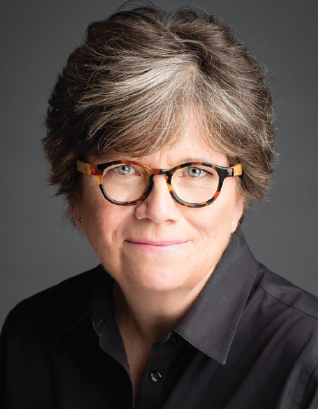Talking Shop: The Upside of Chaos

JOAN GARRY: Principal, Joan Garry Consulting
Garry believes the best nonprofits are like twin-engine jets. In advancement, the board chair and institution president are co-pilots. The staff and lead volunteer engines need to be strong, effective, and efficient. But, of course, there will always be turbulence. "If you haven't had a crisis at an institution, it's not because you're good—it's because you're lucky", she warns. The author of Joan Garry's Guide to Nonprofit Leadership, Garry shares advice on dealing with disorder.
Joan Garry, principal of Joan Garry Consulting, believes the best nonprofits are like twin-engine jets. In advancement, the board chair and institution president are co-pilots. The staff and lead volunteer engines need to be strong, effective, and efficient. But, of course, there will always be turbulence. "If you haven't had a crisis at an institution, it's not because you're good—it's because you're lucky," she warns. The author of Joan Garry's Guide to Nonprofit Leadership, Garry shares advice on dealing with disorder.
You proudly proclaim that "nonprofits are messy." Why should advancement leaders embrace the mess?
Messy is not necessarily a pejorative. In my podcast interview with Tim Harford, the author of Messy: The Power of Disorder to Transform Our Lives, he argues that the right kind of mess breeds creativity and inspiration. Hierarchy doesn't necessarily bring out the best in everybody. Messy hardwiring can actually be an asset—leading to creative thinking and innovation. Consider a brainstorming session with a diverse group around the table. Ideas fly, one building on the one before, and then another comes out of nowhere. In the end, from that messy conversation comes one great idea.
Speaking of making a mess, what are the biggest mistakes institutions make when hiring an advancement vice president?
For one, people hire advancement VPs thinking that person alone has all the keys to success, not appreciating that fundraising is very much a team sport. The second mistake is they focus on skills and forget about attributes. A candidate may have closed million-dollar gifts or worked at a similar-size institution, but are they as passionate about the work that you're doing at your institution? Do they have first-rate relationship-building skills?
What do you have against meetings, and how do we fix them?
So many of my clients say, "I can't get anything done because I'm always in meetings." We waste meetings or have them for the wrong reasons. Make sure that the meeting does not reiterate anything that could have been written in a two-paragraph email. Meetings should give the group an opportunity to work together or to think through the problems and opportunities that might come with a new idea, gift, or campaign.
How do you think Donald Trump's election to the U.S. presidency has changed advancement?
Life for the nonprofit sector is uncertain, regardless of what side of the political aisle you're on. People are really angry. But, you have a highly mobilized citizenry right now—people who are anxious to get out of the stands and onto the field. Whether you're an advocacy or direct service organization, a house of worship, or an institution of higher ed, take advantage of the opportunity of a mobilized electorate. Engage them in your work, educate them, tell them stories, tell them why your work matters. People are listening now more than they ever have before.
How can leaders have difficult conversations in these politically charged times?
I am a firm believer in authenticity. I talk about political issues as agnostically as I possibly can. In higher education, the best way to contend with some of the political issues that surface is to bring them to life in a story. "Here are some of the things we're grappling with. Let me tell you about a student who is dealing with … ." It's not to change that person's political point of view but to make the situation as clear in as nonpolitical a way as possible.